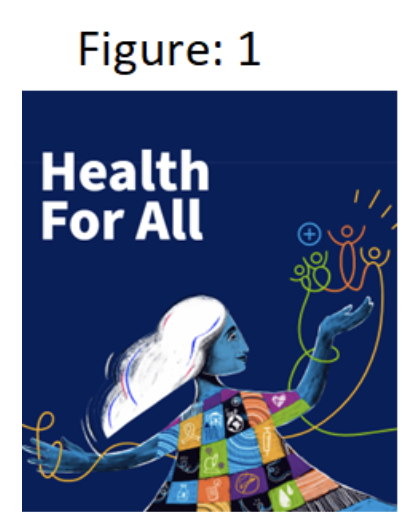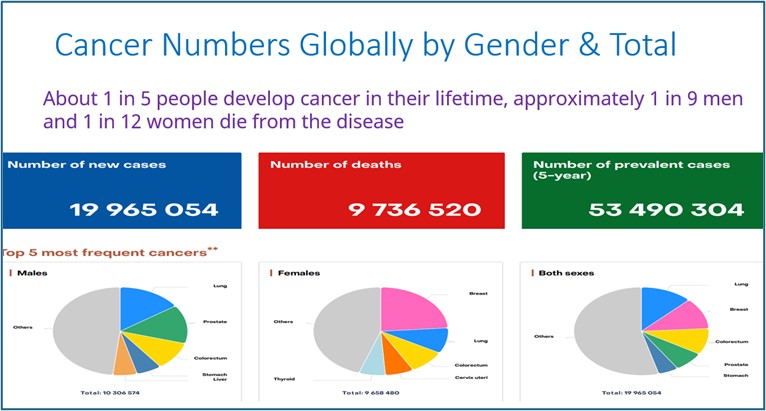In today’s paper we will discuss the achievements of 75 years of World Health Organization and the theme of “health for all” and see where we stand. We will then closely look to the negative impact that Covid pandemic has caused on the life expectancy of the United States and review the Government process of lifting the public health emergency from May 2023 since pandemic is now relatively under control.

On 7 April 2023 ̶ World Health Day ̶ the World Health Organization will observe its 75th anniversary (see fig1)
In 1948, countries of the world came together and founded WHO on April 7, to promote health, keep the world safe and serve the vulnerable – so everyone, everywhere can attain the highest level of health and well-being.
Health for All: Promoting the health, keeping the world safe and protecting the vulnerable is the theme for 75th World Health Day.
WHO envisaged that all people have good health for a fulfilling life in a peaceful, prosperous, and sustainable world. The right to health is a basic human right. Everyone must have access to the health services they need when and where they need them without financial hardship. While this is idealistic and tremendous successes are achieved in controlling communicable diseases and controlling non communicable diseases that has increased life expectancy and improved the quality of life, all is not well yet.
30% of the global population is not able to access essential health services.
Almost two billion people face catastrophic or impoverishing health spending, with significant inequalities affecting those in the most vulnerable settings.
To make health for all a reality, we need: individuals and communities who have access to high quality health services so that they can take care of their own health and that of their families; skilled health workers providing quality, people-centered care; and policymakers committed to investing in universal health coverage
COVID-19 and other health emergencies, overlapping humanitarian and climate crises, economic constraints, and war, have made every country’s journey to Health for All more urgent. Now is the time for leaders to take action to meet their universal health coverage commitments and for civil society to hold leaders accountable.
WHO recommends increases in “health taxes” on tobacco, alcohol, added sugar, and fossil fuels. These taxes bring in much needed public revenues. However, most Government are likely to be cold feet for such actions for there are powerful lobbies against these actions. What WHO envisages is shift from economies driven by profit and pollution to economies driven by fairness and well-being. Success must be measured by the well-being of people and healthy environments and not my money or health centers creation alone. Engage and empower individuals, families, and communities for increased social participation and enhanced self-care in health. Ensure informed and active participation, with people at the center of health decisions and outcomes. Universal health coverage is a political and social choice. We need strong political leadership and public demand.
Covid Pandemic Current Scenario: Government Perception in the USA
Based on current COVID-19 trends, the Department of Health and Human Services is planning for the federal Public Health Emergency for COVID-19 (PHE), declared under Section 319 of the Public Health Service Act, to expire at the end of the day on May 11, 2023. Thanks to the Administration’s whole-of-government approach to combatting the virus, we are in a better place in our response than we were three years ago, and we can transition away from an emergency phase. Government cannot unendingly support the extra care universally with a huge loss of the resources. So, in a phased manner, unwinding of the services provided during the emergency will begin from May 11, 2023.
Covid Pandemic Current Scenario: As the situations are in the World and in the USA.
At present globally between 140,000 to 200,000 new cases are reported globally with nearly 800 deaths every day.
In the USA, as of 2023, COVID continues to spread unchecked, killing over 400 Americans per day. Despite decreased access to testing, over 14,000 new cases are reported per day nationwide. The virus continues to mutate rapidly, outpacing vaccines and treatments. Workers still lack sick leave, and most buildings lack adequate ventilation. Long COVID is affecting tens of millions of Americans, with few available treatments. The pandemic is not over. COVID, like nearly all public health issues disproportionately harms and kills low-income, Black, indigenous, Latino, elderly and disabled people. This systemic injustice is the overarching emergency. Its not just numbers, but those who are getting affected belong to color and race that is more often neglected, having high level of poverty, low level of education and employment.
Mortality Decline in the USA and how it changed in last few years:
Life expectancy in the US was 47 years in 1900, 68 years in 1950, and by 2019 it had risen to nearly 79 years. But it fell to 77 in 2020 and dropped further, to just over 76, in 2021. That’s the largest decrease over a two-year span since the 1920s. Some groups experienced much bigger drops in life expectancy over the last two years than others (See figure 2 and figure 3) and they are the one to have been more affected by Covid 19 and would need help at this stage.
Why is life expectancy falling in the US?
COVID-19, drug overdoses, and accidental injury accounted for about two-thirds of the decline in life expectancy, according to the 2022 report. Other reasons included heart and liver disease and suicides. The drop in life expectancy would have been even greater if not for a bit of good news: decrease in deaths from chronic lung disease, pneumonia, influenza, and Alzheimer’s disease. The fact that overuse of drugs and suicide may not be due to Covid, but Covid may well be contributing to that cannot be denied.
Government should reconsider lifting the Public Health Emergency:
World Health Organization is celebrating 75 years of its achievement. Focus is on the quality of care and with a concept that health is a basic right of everyone and not a privilege. It is the duty of the Government to provide basic essential health care to everyone and specifically to more vulnerable sections of the society. Promoting the health, keeping the world safe and protecting the vulnerable is the theme for 75th World Health Day. Considering this, lifting emergency at this stage is going to push the most vulnerable to a greatly disadvantaged position.
WHO Director-General Tedros Adhanom Ghebreyesus said “there is no doubt that we’re in a far better situation now” than a year ago, but added that in the last eight weeks, 170,000 people have died worldwide from the coronavirus. He further confirmed that Covid virus will remain a permanently established pathogen in humans and animals for the foreseeable future. Only hope is a large level of herd immunity established by now with wide scale infection and vaccination.
While there are multiple figures of how many may lose their health insurance once PHE is lifted, these figures are high and those who will be affected are likely to be most vulnerable and their health will be at very high risk, is beyond doubts. We should be expanding, not shrinking, our public health infrastructure to protect our communities.
At Asian Pacific Community in Action, we strongly recommend that the disease and mortality due to Covid is very high, health coverage has just started improving and it needs further promotion and considering all this, Government should not lift the PHE at this stage and postpone it for a year at least to consolidate the gains achieved so far and improve from thereon.







